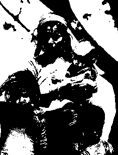
home
methodology
& outputs
© University of Newcastle upon Tyne
 Second order water scarcity in Southern Africa
Second order water scarcity in Southern Africa
The DFID Engineering KaR Programme: Proposal W1-17, 2002-2007
Crosscutting Themes
Gender
 Research has highlighted the gap between discourse and reality concerning gender issues in water projects. Deepa Joshi has shown how the theory and practice of supposedly gender sensitive water projects has focussed on women and men instead of gender and social relations. As women are identified as a unitary social category, the fact that various women belonging to various social groups face widely differing restrictions to participation has been largely ignored.
Research has highlighted the gap between discourse and reality concerning gender issues in water projects. Deepa Joshi has shown how the theory and practice of supposedly gender sensitive water projects has focussed on women and men instead of gender and social relations. As women are identified as a unitary social category, the fact that various women belonging to various social groups face widely differing restrictions to participation has been largely ignored.
This has led projects deemed quite gender sensitive to ignore the fact that many women from distinct social categories were not participating and that many others were participating yet were not empowered out of that participation.
The web of power relations that determine individual stakeholders’ access to water, their capacity to decide the use of water or the allocation of water also affect women. They are not a homogeneous class within any community. Gender power relations must be understood within the context of all the other power relations woven around water in general. Otherwise, devising gender sensitive strategies for successful water development that will ensure access to water, use of water and allocation of water to women becomes impossible.
Environment
None of the stakeholders actually wish to degrade the aquifer. The mesh of competitions and conflicts that occur as they deploy various strategies to secure an access to water generally result in a degradation of the aquifer. The web of power relations woven around water must be clearly mapped in order to identify the assets that can be built on, such as the relation of co-operation, the competitions that can be turned into co-operation and the conflicts that can be scaled down into competitions.
 Sustainability
Sustainability
Any social management of drinking water, irrigation or any other water system cannot be sustainable unless the population involved finds it legitimate. That is a necessary yet insufficient cause of success for any water management institution and regulation. Understanding the rules and regulations concerning water management that are held as legitimate by all stakeholders is therefore an essential step in devising any efficient water development scheme.